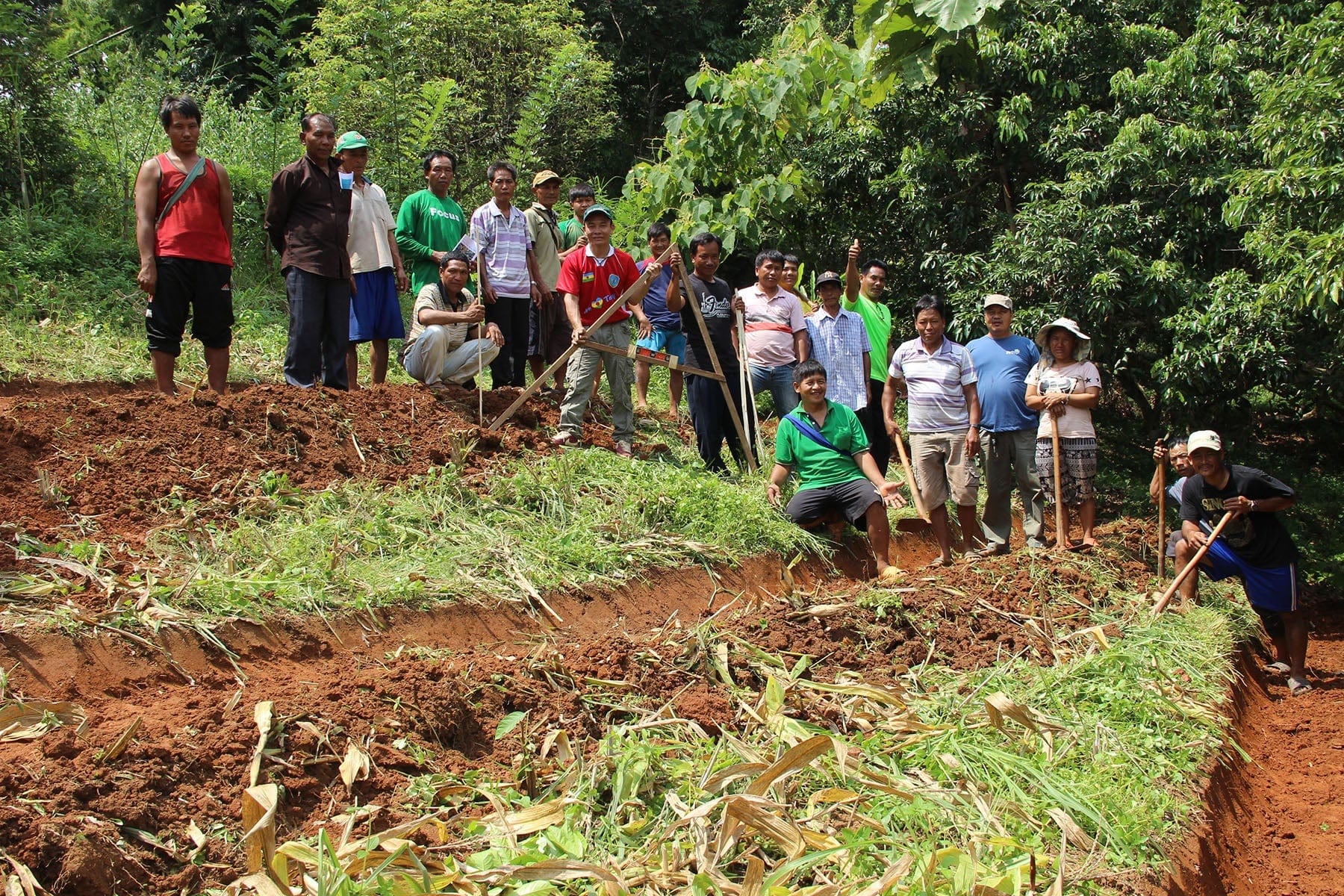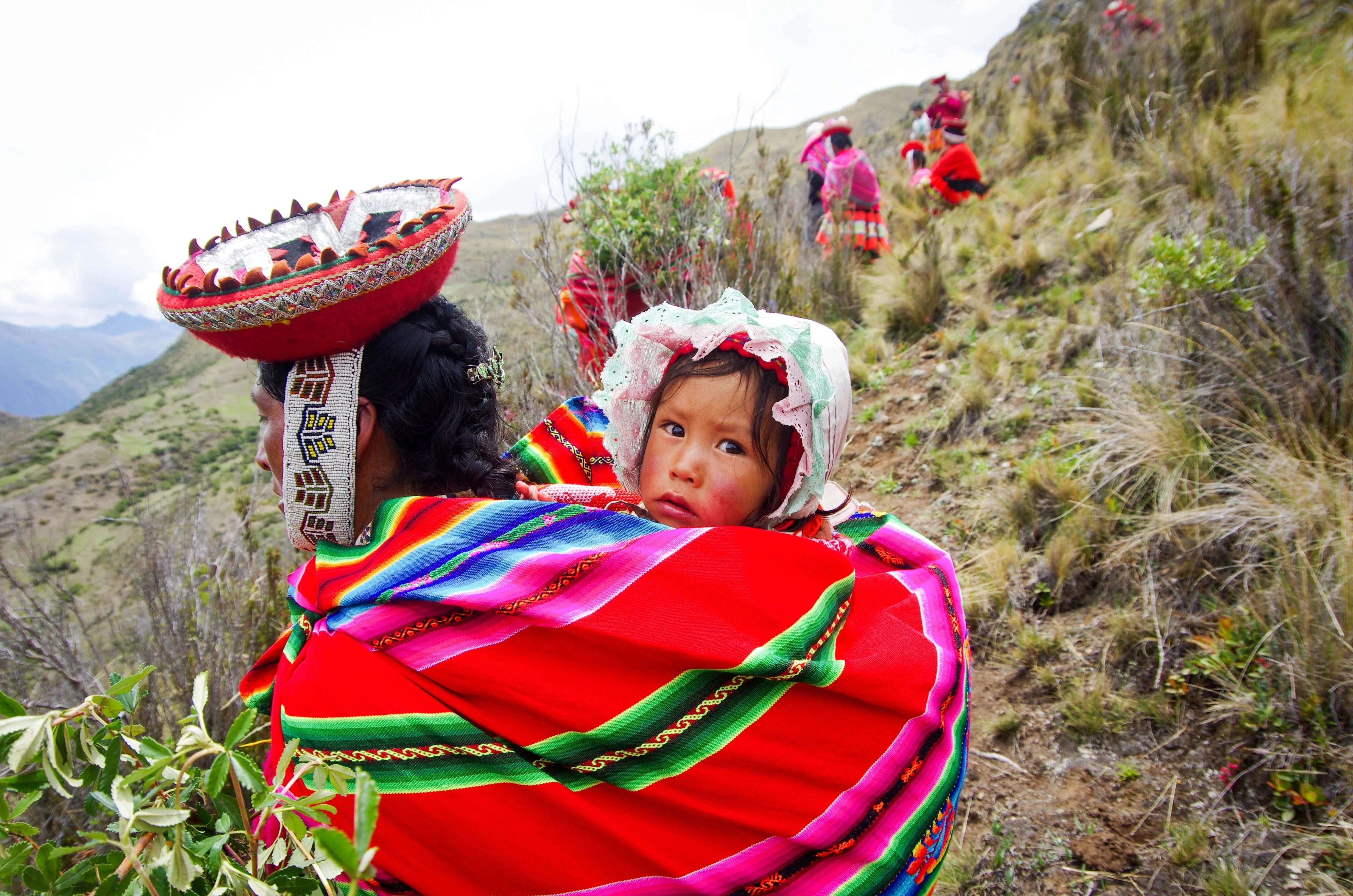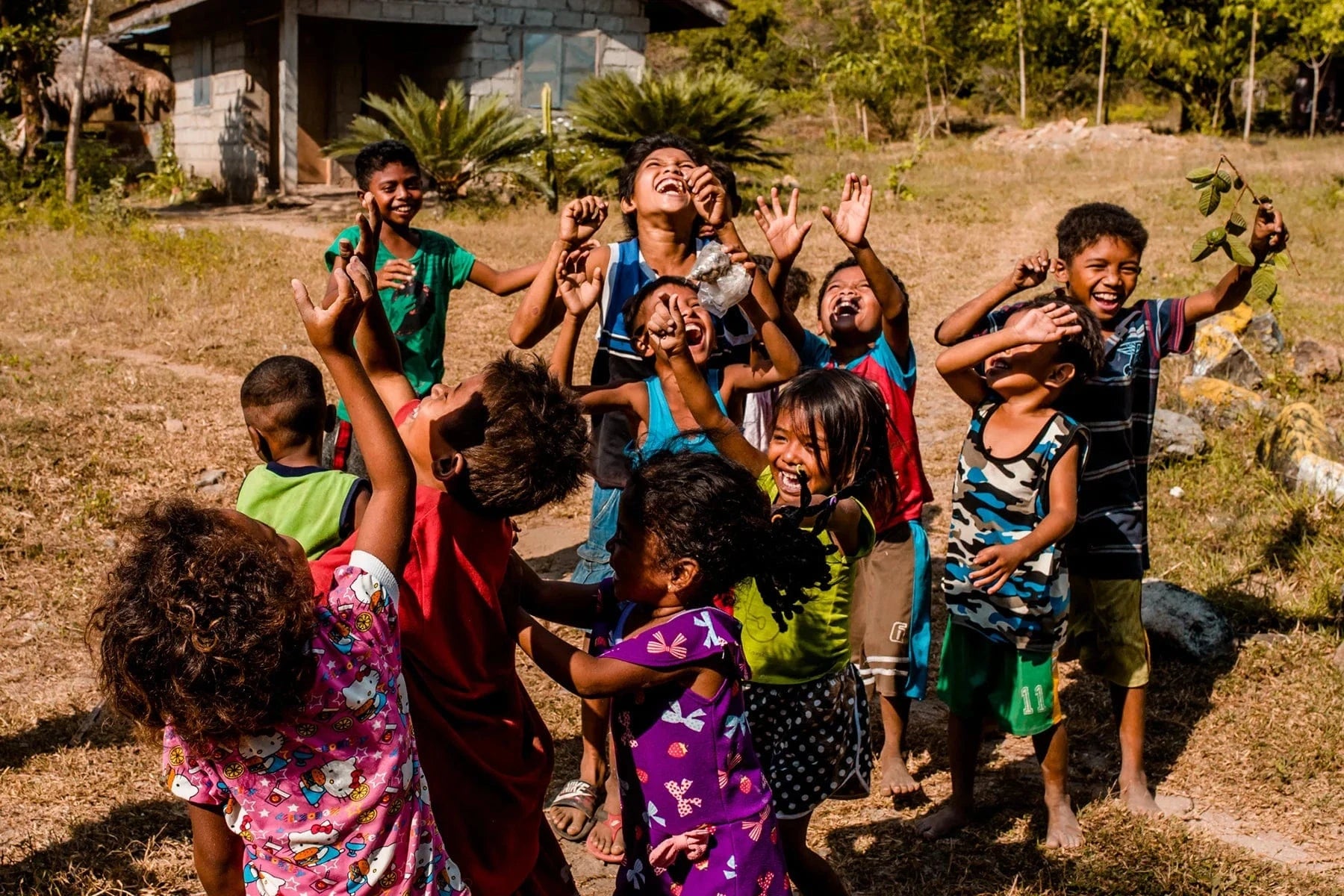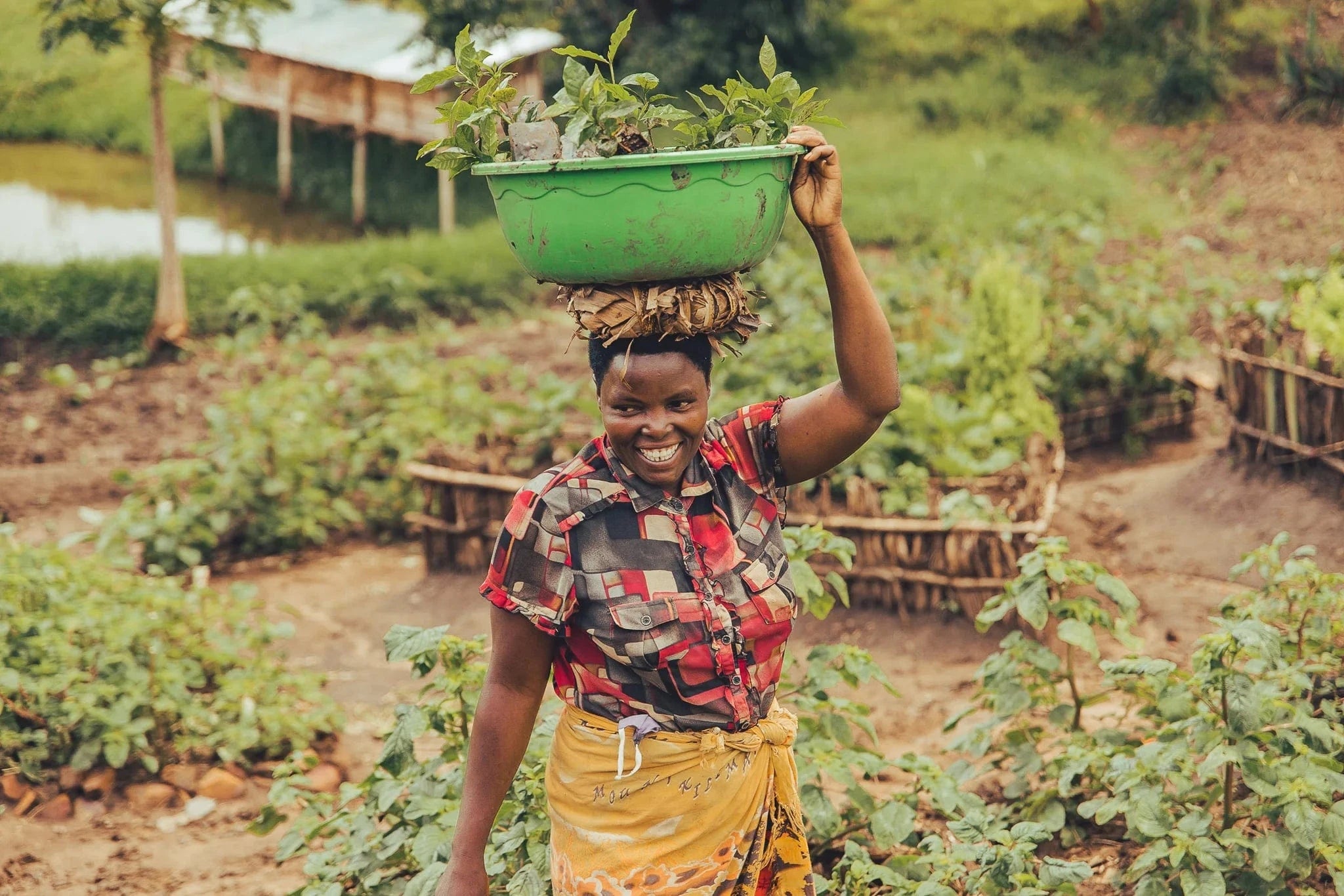
Click here to support reforestation
with your company.
Get news, updates, & event Info delivered right to your inbox:
Planting Trees, Growing Change
When people talk about reforestation, they often talk about the ecological impacts of planting new trees. Those impacts are very important, and reforestation provides so many benefits to nature. Planting trees can also have a powerful social impact on the communities where the trees are planted. These include: educating smallholder farmers on best land practices to reduce environmental impact and increase crop yields, supporting indigenous communities in their vital work of safeguarding existing forests, providing opportunities for youth and communities to learn more about nature the environment, improving income and nutrition, and more! While reforestation is vital for nature and the environment, the social impact is just as crucial.
From helping locals earn an income to promoting gender equity, reforestation is a remarkable way to help give back to communities. Let’s look at some of our projects that help promote social impact!
4 Reforestation Projects That Have a Powerful Social Impact

1. Working At the Intersection of Reforestation and Human Rights in Thailand
In a remote region near the border of Myanmar, woven into the very fabric of northern Thailand's rugged hill country, live a group of marginalized ethnic minorities. Commonly referred to as the hilltribes, many are refugees of civil strife in Myanmar and have been in Thailand for generations — but often aren’t recognized as citizens.
This project has helped plant trees in Thailand to support watershed restoration and human rights efforts for the hilltribes.
With the help of our amazing on-the-ground partner, the hilltribes used this reforestation project as a means to restore degraded ecosystems, earn income, and secure recognition from the Thai government.
Against all odds, it worked, and they have since been acknowledged and have been able to farm and manage the forest with greater security and peace. This project also helped to promote gender equity, with 64% of participants being women, and most of those women were in positions of leadership.
Not only did this project help nourish and revitalize the soil, restore degraded habitat, improve water sources, and stabilize weather patterns in an area that’s at the forefront of climate change, it also empowered the hilltribes people with the opportunity and resources to make a powerful impact for the environment.

2. Restoring High-Altitude Forests Across the Andes Mountains
High above the Amazon basin, shrouded in mist and nestled amongst the slopes of the longest mountain chain in the world, live a community of gnarled, majestic trees: the High Andes Polylepis forest. These high-altitude forests are important for capturing water-borne moisture, but a lot of these forests have historically been cleared for agriculture and fuelwood.
With glaciers melting due to climate change — and few trees to capture and filter water — many highland regions now face seasonal drought and a decreasing water supply, causing water from melting glaciers to erode soil that was once held in place by trees. This degrades the topsoil and creates increasingly dry conditions, amplifying wildfire risk throughout the entire watershed — including the Amazon Rainforest.
But here’s the good news: reforestation can help! One Tree Planted is partnered with Global Forest Generation to support Accion Andina, the first multi-country, large-scale, grassroots initiative to restore the high-altitude native forests of South America's high Andes.
Restoration offers many other benefits to local people. As part of the project, communities receive culturally appropriate and desired services, including support in developing micro-businesses such as eco-tourism and nursery-raised foods, alternative energy sources, and solar panels.

3. Youth-Led Restoration in the Philippines
The youth are leading the world by storm. Reforestation and restoration projects are no exception to this.
In 1991, the second-largest volcanic eruption happened in Mount Pinatubo, Philippines, causing widespread devastation. Over 30 years later, restoration efforts are still happening to help local communities affected by the eruption. One Tree Planted is honored to be part of that restoration effort, and to support the young people that are working to make a difference for their future.
The overarching goal of this project is to work with local community members and tribes to empower them to make a difference in their communities. Our partner, For the Future PH, is a group of twelve young Filipinos that are working hard to make the world a better place for future generations.
Not only does this project help youth get involved and make an impact, but it will also be used to create jobs, host educational seminars and workshops, provide supplies and capital for farmers, connect farmers to processors, and introduce new technologies and practices. It will also include internship and scholarship programs for the youth.
Young people are our future leaders, and these projects allow them to learn and grow as activists and people, helping to shape the future for the better.

4. Empowering Smallholder Farmers in Rwanda Through Sustainable Agroforestry
Our reforestation partner KULA works to eradicate poverty through the development of entrepreneurs in Rwanda's coffee producing communities. Upon maturation, the coffee seedlings that are planted, grown, and maintained by the farmers who received them, can provide sustainable income for these families for up to 30 years.
Growing shade trees together with coffee trees provides a powerful blend of economic and ecological benefits that extend far beyond carbon sequestration and biodiversity habitat. Shade trees protect the coffee trees from drought stress and harsh sun exposure, which increases the quality of the coffee harvest. They also improve soil health by helping to maintain the soil structure and replenishing soil nutrients that are used by the coffee trees. Soil quality is an important piece of the puzzle of any successful and sustainable farming operation.
The extra income and stability that comes from sustainably grown coffee beans enables farmers to invest in themselves, building hope, strength and vision for a brighter future. They’re able to provide better healthcare for their families, send their children to school, put nutritious food on the table, and increase their savings. And every farmer empowered means lasting impact and change for the larger community.
Ready to Plant Trees for Social Impact? Here’s how you can get involved.
Feeling inspired? Stay tuned for more storytelling about incredible projects like these! In the meantime, plant trees today and help make an impact!
Click here to support reforestation
with your company.
Get news, updates, & event Info delivered right to your inbox:
Related Posts
Plant Your Resolution: Making a Global Impact With The Grove
01/01/2026 by One Tree Planted
Trees & Oxygen: How They Produce It, How Much They Make, and Why It Matters
30/12/2025 by One Tree Planted
Amazon Rainforest Facts & Why It Matters for the Planet
25/12/2025 by One Tree Planted
Popular On One Tree Planted
How to Reduce Waste: 21 Practical Zero Waste Tips for Everyday Living
23/12/2025 by Meaghan Weeden
Inspirational Quotes About Trees
16/12/2025 by Meaghan Weeden
The 9 Oldest, Tallest, and Biggest Trees in the World
11/12/2025 by One Tree Planted
Fundraising Disclosures

Be Part of the Restoration Movement
The Grove is more than just a monthly giving program: it's a vibrant community of individuals who are dedicated to reforestation and environmental restoration on a global scale.





